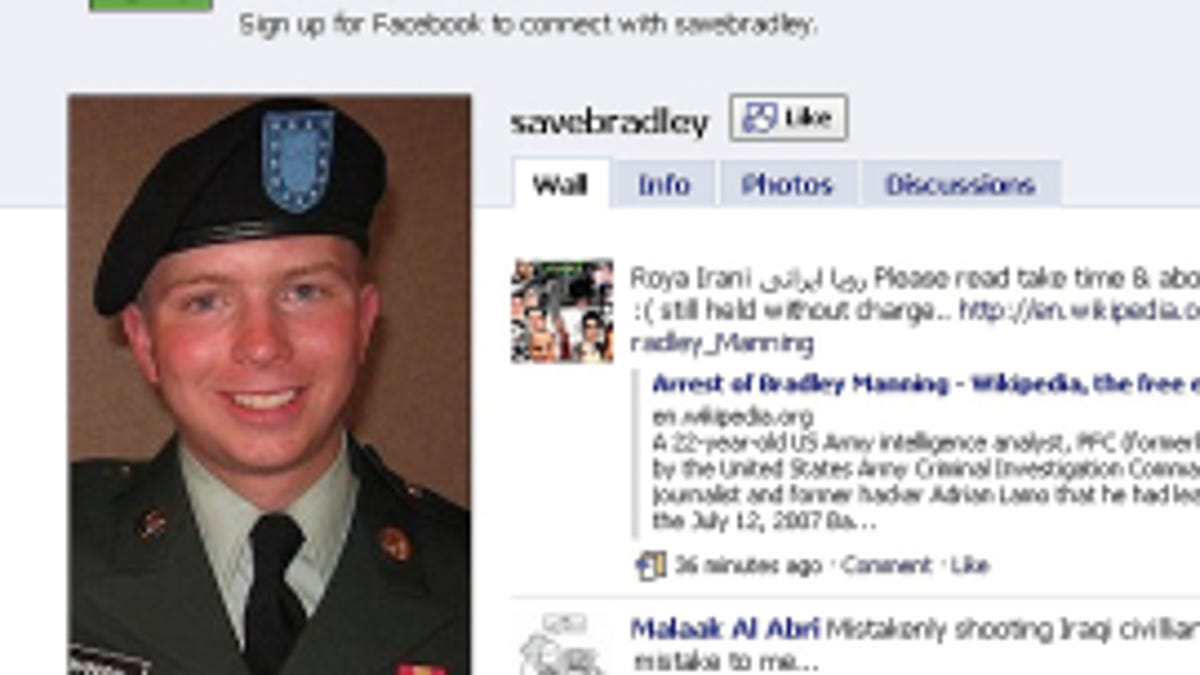Diplomatic cables on Manning's computer, investigator says
A U.S. military hearing turns sour for Bradley Manning after an investigator says sensitive data made its way to a computer Manning used, and eventually, the government argues, WikiLeaks.

U.S. Army Pfc. Bradley Manning was dealt a significant blow yesterday after a government investigator at a hearing revealed that a computer Manning used had diplomatic cables and other sensitive information on it.
According to the Associated Press, which first reported on testimony that digital-crimes investigator David Shaver gave in Manning's case, one of Manning's work computers had over 10,000 diplomatic cables, as well as video of a widely publicized 2007 helicopter attack in Iraq. Shaver's testimony follows U.S. government claims that Manning was accessing classified information and giving it to WikiLeaks founder Julian Assange.
Manning was charged last year with providing the data to WikiLeaks. In March, he was hit with 22 additional charges, including "aiding the enemy." For his part, Manning has denied those charges. The hearing is being held to determine whether he should be court-martialed on those charges.
Aside from the data Shaver discovered, he said that the computer had been used by someone to facilitate the downloading of cables with the eventual goal of "moving them out," the AP reported today. What's more, the data was linked to a "bradley.manning" username, Shaver told attorneys, adding that another government computer given to Manning was used to search for "WikiLeaks" and "Julian Assange."
The defense has yet to argue its case. But when it does, it could argue that the data Manning allegedly gave to WikiLeaks did not harm the U.S. government.
Manning defense attorney David Coombs earlier this month requested a copy of a White House "report detailing the rather benign nature of the leaks and the lack of any real damage to national security" caused by WikiLeaks. It asked for similar documents from the State Department, the Defense Department, and the Justice Department.
Among the nearly two dozen claims against Manning, the government charges that he put U.S. national security in jeopardy. If he's found guilty of that charge, the 24-year-old could face life in prison. An argument that the leaks did not harm national security could earn him a much lesser sentence or the chance to strike a plea deal.
But before all that can happen, the defense will have the chance today to cross-examine Shaver on the information he found on the computers. However, unlike yesterday's hearing, which spectators and reporters were allowed to sit in on, today's proceedings will be kept private because they involve classified information--even though the information has been widely published by media.
After Shaver is finished with his testimony, the U.S. government, which has already called 13 witnesses, is expected to bring another eight people before the court.

